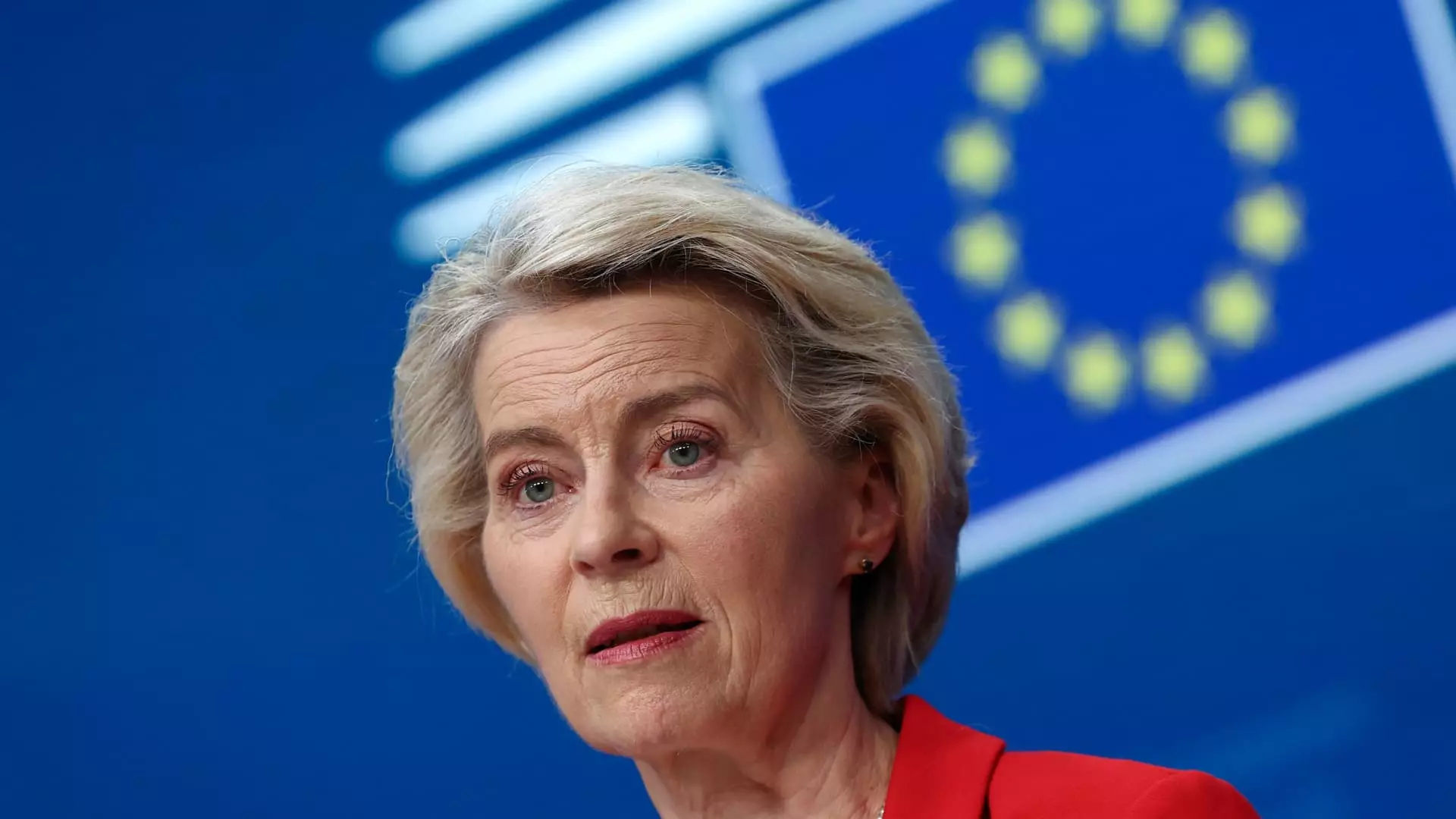In an era riddled with economic volatility and geopolitical maneuvering, the recent decision by the European Union to suspend retaliatory tariffs signals a fragile attempt at diplomacy. While Brussels articulates a desire for negotiations and holds out hope for a deal, underlying tensions suggest that genuine progress remains elusive. The deliberate pause on implementing countermeasures could be a strategic misstep—an act of temporary appeasement that risks delaying, rather than resolving, the deeper systemic issues at play.
This gesture, while seemingly positive, exposes the precariousness of transatlantic relations. It’s worth questioning whether the current diplomatic dance is driven more by strategic necessity than a true commitment to equitable trade reforms. The EU’s trade interests—spanning pharmaceuticals, automotive industries, and aerospace—are vital, yet their vulnerability to unilateral American tariffs reveals the fragility of current economic frameworks. Relying on the mercy of negotiations in a climate where power dynamics heavily favor the U.S. seems fundamentally flawed and inherently unstable.
The Power Imbalance and the Myth of Fair Negotiation
At the core of the ongoing dispute lies a stark imbalance of power. President Trump’s assertions that tariffs are tools for national security reveal a deeply protectionist mindset rooted in economic nationalism rather than genuine security concerns. The declaration that the United States considers its trade deficit a threat illustrates a misdiagnosis of economic interdependence. Instead of fostering cooperative solutions, Trump’s approach exacerbates divisions under the guise of strategic rebalancing.
European leaders like Ursula von der Leyen and Italian Foreign Minister Antonio Tajani speak about negotiations with optimism, but in reality, their words mask a realization of vulnerability. The EU’s reliance on critically important exports—cars, aircraft, medications—places it in a precarious position, where concessions could be perceived as victories for American leverage. The question arises: are these negotiations a pursuit of mutual benefit, or merely a hustle to preserve a status quo heavily skewed towards U.S. interests?
Furthermore, Trump’s reluctance to accept draft agreements indicates a shifting goalpost, where satisfaction is replaced by an insatiable demand for better terms. Such tactics undermine the very notion of fair negotiation, casting doubt on whether compromise is genuinely sought or if it is simply a tactic to prolong uncertainty. This pattern of brinkmanship leaves global markets in limbo and erodes the trust necessary for sustainable economic partnerships.
The False Promise of National Security Through Tariffs
Trump’s framing of tariffs as vital to national security reflects a dangerous conflation of economic policy with political rhetoric. The narrative that America’s economic vulnerabilities stem from foreign trade deficits simplifies complex global supply chains into national security threats—an oversimplification that borders on protectionist propaganda. This narrative disregards the interconnected nature of modern economies, where reciprocal trading relationships foster growth rather than insecurity.
The real danger of this approach is its capacity to trigger a spiral of retaliatory measures, pushing the global economy toward a perceived brink of chaos. French winemakers and German automakers are not just pawns caught in a tit-for-tat game; they are stakeholders whose livelihoods are increasingly jeopardized by the erosion of predictable trade policies. The invocation of security concerns to justify tariffs risks normalizing a climate of economic hostility, undermining decades of international cooperation based on mutual benefits.
Until there is a reassessment of the underlying assumptions that drive these disputes, negotiations will remain superficial. Genuine diplomacy demands more than delayed tariffs and vague promises; it calls for acknowledgment of mutual interdependence and shared responsibilities. A fair, balanced approach rooted in respect—and not threats—is essential to pivot the ship away from confrontation toward sustainable coexistence.
The pathway forward is painfully clear: the current trajectory leads toward increased instability, not resolution. The world watches as the EU and the U.S. engage in a series of tactical maneuvers, each claiming to negotiate in good faith while retreating behind layers of protective rhetoric. This is an urgent wake-up call—not only for policymakers but for citizens who stand to lose the most from continued economic discord.
The challenge lies in breaking free from the cycle of threats and counter-threats—embodying real leadership that prioritizes cooperation over domination. As global interconnectedness deepens, so must our collective recognition that prudent, fair trade policies serve the interests of all, not just the most powerful. In an age where economic trust is fragile, genuine progress demands courage, humility, and a willingness to look beyond short-term wins toward sustainable peace.


Leave a Reply